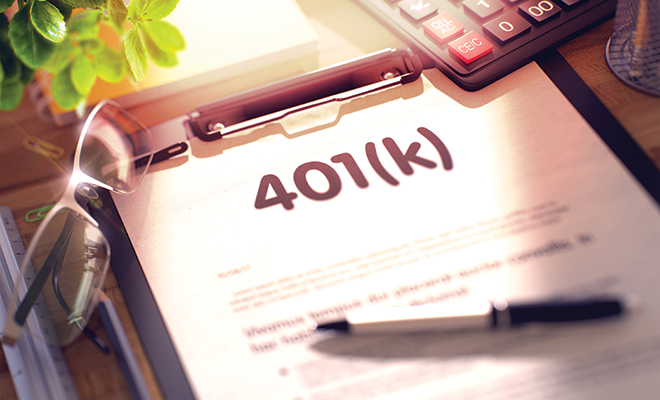
Money Management: 401(k) Borrowing
Many financial experts say you should never borrow from your 401(k), but there are circumstances when it’s your best option. A 2014 report from financial services firm TIAA-CREF says that nearly one-third of people who have money in a 401(k) retirement plan have borrowed from their savings. According to the survey, the two main reasons for borrowing were to pay off debt or cover an emergency expenditure.
it’s not hard to see why so many Americans have turned to this type of borrowing. The majority of workplace retirement plans allow employees to borrow from their own savings without the penalties associated with early withdrawal. The Internal Revenue Service limits the amount that can be borrowed to 50 percent of the account’s vested balance, up to $50,000, and in most cases the entire loan must be repaid within five years. If the loan is used for the down payment on a home, the five-year deadline may be extended for an additional five years.
you are borrowing your own money, you don’t need to get approved by a bank or undergo a credit check when applying for a 401(k) loan. Another benefit of this type of loan is that the interest rate may be lower than a traditional bank loan. In terms of taxes, a 401(k) loan is preferable to an early distribution. You won’t have to pay federal taxes on the loan, but you won’t be able to deduct the interest from your taxes as you can with a mortgage.
Borrower Beware
Before you even consider borrowing from your 401(k), it’s important to understand the limitations of this financial offering. Most plans will require you to start making payments for your loan at least once per quarter. If you don’t follow the repayment rules, your loan may be reported to the IRS as a distribution and you will be required to pay taxes on it. Many people avoid the risk of missing a payment by setting up automatic deductions from their paycheck.
Leaving your job before paying off your 401(k) loan could mean that you must pay the balance in full within 60 days or face additional taxes when the loan balance is treated as an early distribution. Those under age 59 1/2 face an additional 10 percent penalty for early withdrawal. There is one positive side to defaulting on a 401(k) loan: it won’t impact your credit rating.
You should consider the impact of a 401(k) loan on your retirement savings before borrowing. Having a lower balance means you’ll have lower earnings until the loan is repaid. In addition, many people make lower contributions to their plan or stop making contributions altogether while paying backing their 401(k) plan; this requirement may be written into the plan document. This means that their 401(k) will grow at a slower rate during their loan repayment period. People are living longer than ever in their retirement years, so you need to evaluate the benefits of borrowing from your 401(k) compared to your plan for long-term savings.
Exceptions to the No-Borrowing Rule
Even with the all the limitations, there are times when borrowing from your 401(k) could be the best option. Borrowing from a 401(k) to help purchase a home can be a good idea, especially if the plan allows an extended repayment schedule. For people who have problems getting a loan at an affordable rate, a 401(k) loan can be obtained without a credit check. If you have substantial high-interest loans, such as student loans, and you have exhausted all other options for refinancing, a 401(k) loan may be the best option, as long as it’s paid off in time. Forbes writer Richard Eisenberg suggests considering a 401(k) loan if you owe back taxes to the IRS. Overdue taxes can accumulate interest and taxes that make payment difficult as time passes.
if you qualify for one of these exceptions, financial experts say you should only consider tapping into your 401(k) when all other options have been exhausted, including a home equity line of credit, credit union loan or personal loan from a friend or family member. Borrowing from your retirement plan should be a final option. Building an emergency savings fund equal to at least six months of income can help you avoid having to borrow from your retirement fund for health emergencies or the loss of your job. If you’re thinking about using a 401(k) loan to pay off high-interest credit card debt, be sure to take steps to ensure the debt won’t grow again after it’s paid down. There are non-profit credit counseling services that help consumers get lower interest rates and work out credit repayment plans, avoiding the necessity of borrowing from a 401(k). ■
Sources: shrm.org, money.cnn.com, forbes.com and cnbc.com.







